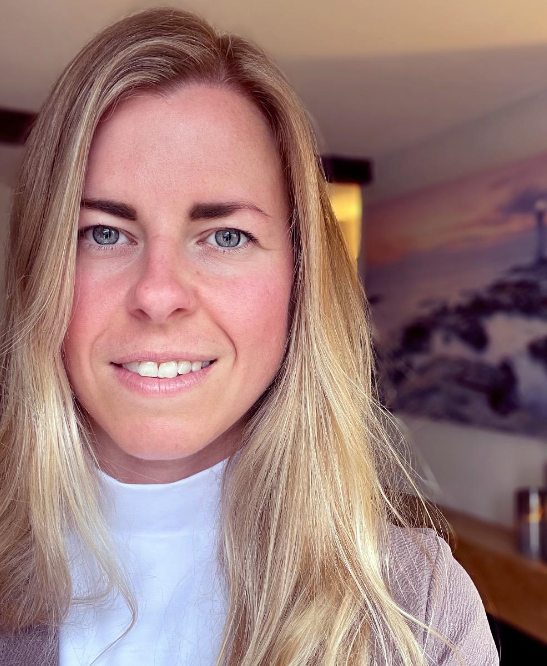After a two year hiatus from overseas travel – cheers Covid – last March I went to the iconic city of Paris. A place known for its great wine, even better cheese, bohemian ambience, historic monuments. And also, the home of the Mona Lisa.
It’s top of the list for most to complete any visit to Paris with a trip to the Louvre museum. And what a sight it was going to be to see her up close!
A queue was joined and slowly myself and a friend edged closer to the magnificent painting. But so too did a mass of phone screens, all intent on a photograph, selfie, or some kind of photographic proof of having seen the iconic lady first hand.
A feeling struck me as I took in the painting, expecting the moment to be Art demanding a sense of brooding, consideration and appreciation. Were people really taking her in? Capturing the moment to memory after waiting twenty minutes for some up close and personal one on one time? Or did they get their photograph and consider it a sight ticked off without a second thought?
Because there was a level of disassociation in the room. And I wondered to myself, Is this a downside to our digital gains, the loss of first-hand experience through our own eyes?
I wonder whether Van Gogh would be happy or disappointed by the way we pay homage to his art today?
Whether he would enjoy that his painting was being appreciated by thousands of phone screens a day and less so by the eyes of the people taking those shots?
The thought lasted throughout the trip as I watched couples taking selfies in front of the Eiffel Tower and other iconic sights, tick list item checked without so much as a glance back to soak up the view. People were taking photos everywhere. And phones with cameras ready were never far out of sight.
I wondered whether we take these snapshots of life because one day we’ll look back upon them with fond memories or, because we’re building up an album for the social media bragging rights? And in doing so, are we losing the ability to enjoy things in the moment? If there isn’t a photographic record that the moment existed, followed by a share, were we even there and was it worth seeing it at all?
I’m not saying all photos are bad, or that I’m not a part of this culture
But is the culture we’re creating of seeing something amazing through the screen of a camera, losing something important in the process? Do we need to be more mindful about deciding when to snap a photo, and when to just enjoy something through our own eyes?
Maybe I’m just getting older and more cantankerous with age. Because I do love that technology has given us the ability to access a camera and capture a perfect moment almost instantly. And yet there is this foreboding sense that in doing so, the perfect moment is losing its in person impact.
Consequently, creating the perfect moment has become not only an aspirational aim but also an art form
So much so, that often the moments themselves are lost in the attempt to manufacture the correct angle, perfect lighting and cutest pose. Smiles begin to fade from re-take three onwards. Time is lost snapping multiple times to make sure that we’ve got the very best photo we can get.
I’m definitely guilty of too much time with camera in hand, and capturing that photo has often become more important than the reason the photo is being taken in the first place. It’s all too easy to snap away. Hundreds of photos never to be used or seen eat up my data, when I could have just captured the moment once and then enjoyed the rest of my time soaking up the view. Or even, not taken a picture at all.
I’ve given up on sunset photos, since the colours never look right or truly represent how pretty the sunset is in real life. And as I get older, I’m also becoming more aware of wanting to enjoy how I spend my time more – since there’s such a limited amount of it left! And I don’t want to lose moments to a phone screen, when I could be experiencing these places and iconic sights, first-hand in the moment.
When I researched this more, I discovered a term known as ‘cognitive offloading.’
Where we don’t remember an event as well because we subconsciously know that our camera is there to remember it all for us. So there really is a disengagement of our attention when we involve a camera in a moment. We’re less focused on what’s happening right in front of us, and recall the details of these moments up to 20% less than if we hadn’t picked up the phone and taken a photo.
“People think that taking a photo will help them remember something better, but it’s actually quite the contrary,” said Julia Soares, doctoral student at University of California.
So I’m putting down the phone more. Resisting the urge to take photos everywhere and learning when to put the camera away and enjoy the moment. Letting go of the ‘missed shot’ opportunity, and creating more time for being present. Because I don’t want to be disassociated from life itself. Or waste precious moments capturing something on my phone, whilst losing the feeling of being there and taking it in first-hand.
Did you like this blog or have some thoughts you’d like to offload? Are you taking photos everywhere or reserving the camera time for certain moments? Share your comments below, I’d love to know.

Amy Roullier
Amy Roullier is a British writer and author of Silent Reflections of a Fragile Heart. For her, writing began as personal therapy and has evolved into a way to connect with others. Based in Lincolnshire, Amy is an occasional vegetarian and a dedicated lover of carbs—her true soulmate. She’s currently navigating a mid-life crisis through running, and mornings are simply impossible without coffee.


